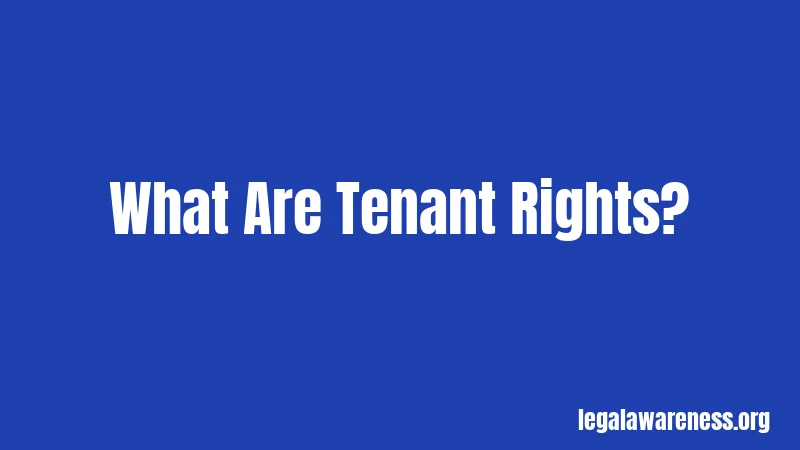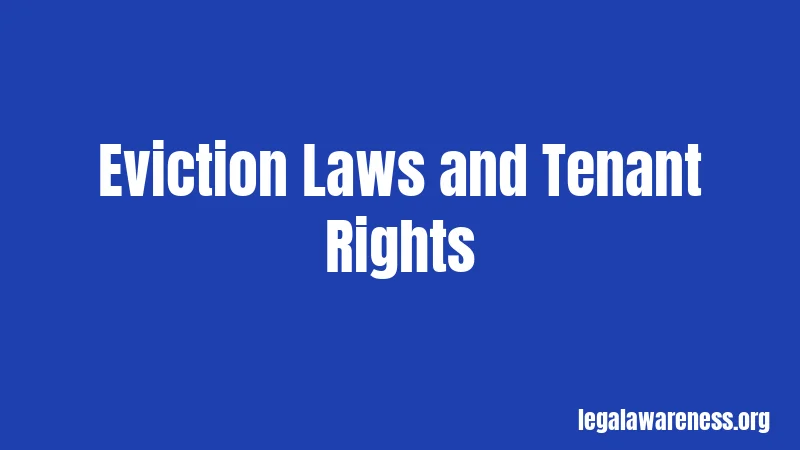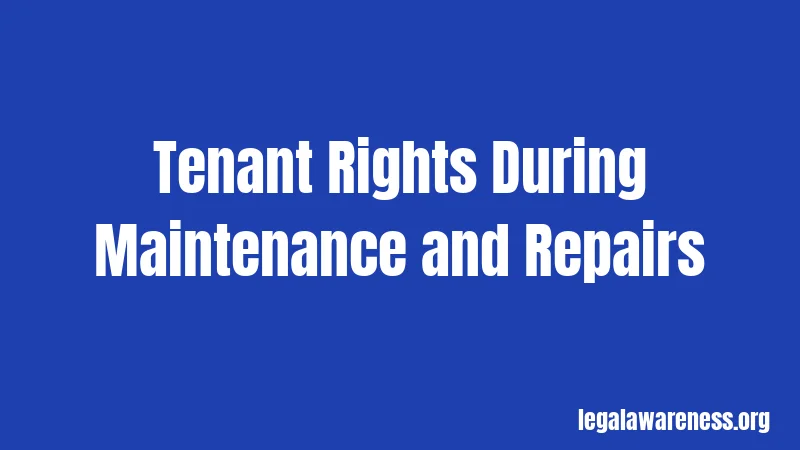Tenant Laws in Washington (2026): Complete Renter Protection Guide
If you’re renting in Washington State, you have more protections than you might think. Seriously. Washington has some of the strongest tenant rights in the country, and landlords have to follow specific rules or face real consequences.
Here’s the thing: many renters don’t know what they’re legally entitled to. That’s actually pretty common. You might be dealing with an unfair eviction, paying too much for a deposit, or dealing with unlivable conditions. The good news? Washington law is on your side. Let’s break down exactly what you need to know.
What Are Tenant Rights?

Tenant rights are legal protections that keep renters safe and secure in their homes. Think of them like a safety net for people who rent. They cover everything from how much security deposit a landlord can charge to when they can enter your unit.
These laws exist because renters are in a different position than landlords. You have less power in the relationship. The law tries to balance that out. Washington takes tenant protection seriously. The state has been updating and strengthening these laws consistently over the past few years.
Basic Tenant Protections
Security Deposits and Move-In Costs
Here’s where many tenants get confused. Your landlord can ask for a security deposit. They can also ask for first month’s rent and last month’s rent upfront. But there’s a limit.
Washington law says landlords can only charge a maximum of one month’s rent for a security deposit. That’s it. Anything more is illegal. The landlord also has to give you a written checklist of the property’s condition before you move in. This protects both of you.
Your landlord has 30 days after you move out to return your deposit. If they keep any part of it for repairs or cleaning, they have to give you itemized receipts showing exactly what they paid for. They can’t just keep money without explaining why.
Not sure if your landlord charged you fairly? Check your lease. Compare that to what Washington law allows. If they overcharged, you might have a claim.
Rent Increases and Payment Terms
Okay, pause. Read this carefully. Washington has strict rules about when landlords can raise your rent.
Your landlord can’t raise rent in the middle of your lease term. If you have a one-year lease, they have to wait until it ends. Even then, there are limits. For tenants in most parts of Washington, rent increases are capped at 7% plus inflation annually. However, certain areas with strict rent control laws (like Seattle) have different rules. Seattle, for example, caps increases at inflation plus a percentage set by the city.
Your landlord has to give you proper notice before raising rent. Typically, this is 20-30 days depending on the type of tenancy. The notice must be in writing. A text message doesn’t count. An email might, but written notice is safest.
One more thing: your landlord can’t increase rent as retaliation for you asserting your legal rights. If you requested repairs or complained about code violations, and then suddenly your rent shoots up, that’s illegal retaliation.
Right to Habitable Housing
Every renter deserves to live in a safe, clean space. Washington law requires landlords to keep rental units in habitable condition. This means the property must have working heat, hot and cold running water, functioning plumbing, and electricity. It also needs to be free from serious pests and mold.
If something breaks, your landlord has to fix it within a reasonable time. What counts as reasonable? Usually 14 days for basic repairs, less for emergencies like no heat in winter. If your landlord doesn’t fix it, you can take action. You might be able to withhold rent, pay for repairs yourself and deduct the cost, or break your lease without penalty.
Your landlord can’t just ignore maintenance requests. They have to respond. This is honestly the part most people miss. Document everything. Take photos. Keep copies of any messages asking for repairs.
Eviction Laws and Tenant Rights

Now, here’s where it gets serious. Washington has very specific rules about how landlords can evict you. They can’t just kick you out because they feel like it.
For a regular month-to-month tenancy, landlords must give you 20 days’ notice and have a legal reason. The reasons are specific: non-payment of rent, material violation of the lease, causing significant damage, or using the property for illegal purposes. Just being unhappy with a tenant isn’t a legal reason.
If you have a lease, you get even more protection. Your landlord can’t evict you during the lease term unless you violate the lease or don’t pay rent. When the lease ends, they must follow proper notice procedures.
Landlords must file for eviction in court. They can’t change the locks, remove your belongings, or threaten you into leaving. That’s illegal and called a “self-help eviction.” If your landlord tries this, you could sue them for damages.
Retaliation Protection
Hold on, this part is important. Washington law protects you from retaliatory evictions. If you report a health or safety violation to local authorities, request repairs, or complain about code violations, your landlord can’t evict you within six months. This is retaliation, and it’s illegal.
What counts as retaliation? Raising rent significantly, decreasing services, threatening eviction, or actually evicting you shortly after you asserted your rights. If your landlord does this, you can fight the eviction in court or sue for damages.
Notice Requirements
Landlords must follow strict notice rules. For non-payment of rent, they usually need to give you 14 days to pay or they can start eviction proceedings. For other lease violations, it depends on the type of violation. Some violations allow a “cure or quit” notice, meaning you have time to fix the problem.
The notice must be in writing and delivered properly. Email, certified mail, or in-person delivery all work. Taping it to your door without personal delivery might not be sufficient.
Recent Changes to Washington Tenant Law
Washington has updated its tenant laws significantly. In 2021, major protections took effect, and the state has continued refining these laws through 2024 and 2025.
One recent change affects no-cause evictions. Washington generally requires landlords to have a legal reason for eviction. Some cities like Seattle have stronger rules, effectively banning no-cause evictions in many cases.
Another update involves landlord access to rental units. Landlords can only enter your apartment for specific reasons: repairs, inspections, showing the unit to prospective tenants, or emergencies. They must give 24 hours’ notice (except in emergencies) and can only enter at reasonable times, typically between 8 AM and 6 PM.
These changes happen because tenant advocates push for stronger protections. If you’re renting in Washington, these updates benefit you.
Tenant Rights During Maintenance and Repairs

Your landlord can’t enter your apartment whenever they want. You have privacy rights. They need to give you written notice 24 hours before entering for repairs, inspections, or showing the place to new tenants.
What counts as an emergency? Things like fire, gas leaks, break-ins, or serious water damage. In true emergencies, your landlord can enter without advance notice.
If your landlord keeps trying to access your apartment without proper notice, that’s harassment. Document these attempts. Keep records of notices you received and dates your landlord entered. You might have a claim against them.
Dealing with Landlord Harassment
Landlord harassment is illegal in Washington. It includes things like excessive notices, threats, reducing services, or creating hostile living conditions to force you to leave. This doesn’t mean your landlord can’t enforce lease terms. It means they can’t cross the line into actual harassment.
What’s the difference between enforcement and harassment? A landlord giving a legitimate lease violation notice is enforcement. A landlord repeatedly entering without notice, threatening eviction, or shutting off utilities is harassment.
If you’re experiencing harassment, document everything. Keep records, take screenshots, save emails. Contact your local tenant rights organization or consider consulting with a lawyer. Many organizations offer free consultations.
Security Deposits and Move-Out
Your landlord has specific obligations with security deposits. As mentioned, they have 30 days after you move out to return your deposit plus interest (in some cases). If they deduct money, they must provide receipts.
Your landlord can’t charge for normal wear and tear. Faded paint, worn carpet, or minor wall marks? That’s normal wear. They can charge for damages you caused beyond normal use.
Here’s the reality: some landlords try to keep deposits unfairly. If you believe this happened to you, you can sue in small claims court or request a refund. Washington law allows tenants to recover up to twice the wrongfully withheld amount plus attorneys’ fees.
Special Situations and Protections
Domestic Violence Protections
Washington protects tenants fleeing domestic violence. If you’re in danger, you might be able to break your lease early without penalty. You can also request that your locks be changed.
If you need this protection, contact a domestic violence organization. They can help document your situation and provide legal support.
Habitability and Code Violations
If your rental unit violates building or housing codes, you have options. You can request repairs. If your landlord doesn’t make them, you might be able to break your lease, withhold rent, or seek damages.
A code violation is serious. It means the unit doesn’t meet legal standards for safety and health. Common violations include inadequate heating, non-functional plumbing, mold, or pest infestations.
Temporary Assistance Programs
Not all of this applies to every situation. Are you facing eviction or struggling with rent? Washington offers emergency assistance programs. These vary by county. Contact your local housing authority for information about assistance in your area.
How to Protect Your Tenant Rights
Stay informed. Read your lease carefully before signing. Understand your obligations and rights. If something seems unfair, it probably is.
Document everything. Take photos of the apartment condition when you move in. Keep copies of all communications with your landlord. Save emails, texts, and notes about conversations. This documentation is gold if you ever need to prove something happened.
Keep your rent paid and follow your lease. Landlords have fewer legal reasons to evict if you’re current on rent and following the agreement. That said, your rights exist even if you have a dispute about rent. Landlords still have to follow proper procedures.
Know who to contact. If you have questions, reach out to a local tenant rights organization. Many offer free advice. If you’re facing eviction or serious issues, consider consulting a lawyer. Some offer free initial consultations.
Responding to Legal Notices
If you receive a notice from your landlord, take it seriously. Read it carefully. Understand what it’s asking and when you need to respond. Missing a deadline could affect your legal rights.
If it’s a pay-or-quit notice and you can pay, consider paying immediately. This stops the eviction process. Keep proof of payment. If you can’t pay, start looking for legal help right away. Don’t ignore the notice.
Frequently Asked Questions
Can my landlord raise my rent whenever they want? No. For existing tenants, rent increases are limited. In most of Washington, increases are capped at 7% plus inflation annually. Seattle and some other cities have stricter limits. Your landlord must give 20-30 days’ notice.
What should I do if my landlord doesn’t make repairs? First, request repairs in writing. Give them reasonable time (typically 14 days). If they don’t respond, consult a tenant rights organization. You might be able to withhold rent, pay for repairs and deduct the cost, or break your lease legally.
Can my landlord evict me for reporting code violations? No, that’s illegal retaliation. If you report a code violation and face eviction within six months, you have legal protection. Document everything and contact a lawyer or tenant rights organization immediately.
How long do I have to move after an eviction notice? It depends on the type of notice. For non-payment, you typically have 14 days to pay before eviction proceedings begin. Once a court issues an eviction order, you usually have 5-7 days to leave. Always check your specific notice.
Can my landlord enter my apartment whenever they want? No. Your landlord needs 24 hours’ notice for routine entry and can only enter at reasonable times. Emergencies are exceptions. If your landlord repeatedly enters without proper notice, that’s harassment.
Am I responsible for damages from normal wear and tear? No. Normal wear and tear is expected. Your landlord can’t charge you for faded paint, worn carpet, or minor marks. They can only charge for damage beyond normal use that you caused.
What happens if my landlord keeps my security deposit unfairly? You can sue for the amount wrongfully withheld. Washington law allows you to recover up to twice the wrongfully withheld amount plus attorneys’ fees. Small claims court is an option for amounts under your court’s limit.
Final Thoughts
You have rights as a renter in Washington. These laws exist to protect you. The key is knowing them and standing up for yourself when something feels wrong. Don’t assume your landlord is always right or that tenant rights don’t apply to you.
Stay informed. Document everything. Reach out for help when you need it. Whether it’s a local tenant rights organization, a lawyer, or a government agency, resources exist to support you. Now you know the basics. Stay safe, stay informed, and when in doubt, reach out to a professional.
References
Washington State Residential Tenancy Act (RCW 59.18) – Official state law governing tenant rights and responsibilities
Washington State Attorney General Consumer Protection Division – State resources and information on tenant rights
Teamsters Housing Preservation Association – Local Seattle tenant rights organization offering free resources and guidance
Washington Law Help – Legal information and referrals for low-income tenants
Seattle Office of Civil Rights – Tenant Rights – City-specific tenant protections and resources
Washington State Department of Commerce – Housing – State resources for housing questions and disputes
